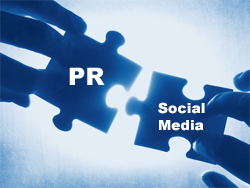 The power of social media is quite self-explanatory.
The power of social media is quite self-explanatory.
As a group of widely-used channels with great connectivity, it truly can be used to develop communities that reach and connect with large groups of people.
Fortunately, in most cases this is a good thing, and your business will benefit from it. However, there is the occasional time that social media can have negative implications, and that’s when its reach coincides with a negative message. As a business owner, the last thing you want is for a bad Facebook comment or tweet from a customer or an angry employee to get too much attention, and potentially show up in Google searches about your company.
That’s why, when you take your business to social media, you should have some sort of crisis management/communications strategy in place so you can act quickly, properly, and mitigate future negative consequences should the situation ever arise.
As a small business, your reputation is everything, continue reading for a guide on how to handle negative PR properly and effectively online:
Scenario 1: If You (or an Employee) Messes Up
First off, you’d certainly not be the first. Just remember, Kenneth Cole, Celeb Boutique, Kitchen Aid, and American Apparel have done much worse than I’m sure you have.
The most important step is to ensure your team apologizes for the mistake, and this doesn’t just mean offering a follow-up “sorry”. Your response must cover the basics; an apology that accepts responsibility and expresses an understanding for what you did that was wrong/insensitive, and a resolution going forward (if applicable). You are simply going to encourage a greater backlash if you don’t take the mistake seriously.
Scenario 2: A Dissatisfied Customer Takes Out Their Anger on Your Social Media Channel(s)
This is likely the most common form of negative press to take place online. Many individuals opt to take their complaints immediately to social media, while some chose to do so after a business continuously fails to meet their concerns.
If a customer has come to you with a complaint, it is wise to be aware of the fact that if you don’t address the issue in a timely or satisfactory manner, then they could use their social channels to notify others and rant about your businesses product or service. So, be courteous, responsive, and try to alter the situation before they take their complaints elsewhere. The same applies if they choose to take their complaints social first; contact the customer promptly and address their concern in the best way possible.
At some point, even the best businesses could find themselves in one of these situations, and being prepared is the first step in handling the situation. Think of it as an opportunity to practice exceptional customer service. When handled correctly, these complaints can actually have a positive impact. After all, small business grow through recommendations, so do your absolute best to mitigate the situation.
Lastly, your business should be taking a minimum of 5 minutes per day to conduct a brief PR scan of your company’s online presence. You can use tools like Google Alerts to receive email updates of a defined search term. As well, actively check your social media channels for any complaints that may have come in. For an in-depth analysis of your company’s reputation, there are services like Reputation.com that can review your entire online identity.
For more helpful articles, be sure to subscribe to our monthly newsletter.
